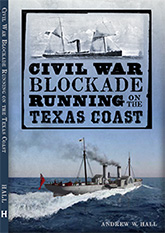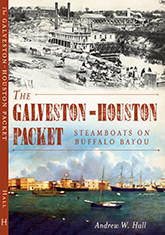Frankly, my dear. . . .
The scene, driving into school Friday:
[Kid digs around for loose change in the console]
Me: What are you looking for?
Kid: I need 75 cents for popcorn.
Me: Popcorn?
Kid: Yeah, Ms. _____ lets us get popcorn, we’re watching a movie in her history class.
Me: What movie?
Kid: Gone with the Wind. It’s awful, and we all get popcorn ’cause it’s sooooo booooring.
Turns out they’d spent the entire week, since Monday, watching Gone with the Wind in class. The good news, I suppose, is that (according to the Kid) none of it registers with the the other middle school students. They’re not following the plot, they can’t keep the characters straight, and the dialogue is mostly incomprehensible. They’re distracted that one of the leading male characters “has a girl’s name.” The clothing looks ridiculous. They have only the vaguest sense of the course of the war, which is the mostly-off-screen event that drives the entire plot of the picture. Interaction between characters like the one pictured above just don’t register. Gone with the Wind, it seems, is a waste in the classroom when presented in this way; it might as well be a Bollywood musical, with all the dialogue and lyrics in Hindi, for all the effect it’s having. The only thing it’s teaching this class is to remember to bring their three quarters every day for popcorn. (Kevin, teaching at the high school level, has used segments from GwtW, but that’s an entirely different approach to classroom use of the film.)
There’s no question that Gone with the Wind is one of the classic films of all time. And it should be remembered in that context. But it’s portrayal of the Antebellum South and its depiction of slavery is atrocious, Hattie McDaniel’s Oscar notwithstanding. It’s not a history lesson.
I feel like I know Ms. _____ reasonably well, and I’m surprised, to say the least. No idea what’s going on here, or why GwtW would be the film of choice, even if one does choose to coast the rest of the year. (State-mandated standardized testing, which seems to be the tail that wags the dog, wrapped up last week.) There are much better, more historically accurate films out there, although they may not be do-able for the classroom. Glory, for example, is rated R; although the violence in it is probably not more gruesome than what’s seen on prime-time broadcast teevee, an R-rated film is a non-starter in the classroom. Gettysburg came out just four years later, and it’s only PG.
What’s done is done for this year, but I think I’ll drop a note to Ms. _____. I really hate to be one of those parents who’s always getting up in the teacher’s face, and the plain truth of the matter is that we’ve rarely had reason to complain. But there’s got to be something better than this.
__________________







Sunds like a typical middle school critique of a movie outside of their own limited cultural sphere. Any hint that the teacher gave any preparation before showing the film? Does she stop it during certain scenes to discuss what is happening, get student reactions? How to use films in class is always a tricky matter, and the poorest use is to fill time.
I asked about that. Apparently no context, or discussion — a time filler.
I also asked some specific questions about the movie — where and when was it set, who were the different characters — and a little — a very little — got in through osmosis.
We watched Glory in my 7th grade history class. We had to sign a waiver, but there it was. It’s a great movie to show to kids in some ways because they immediately root for the 54th Massachusetts against both the white northern racists and the confederates. It’s a cool way to show the ‘3rd side’ of the civil war.
Good for your teacher. I don’t see any problem with Glory for a middle school class, with a waiver. I think the language and bigotry displayed would be more disturbing than the violence. But my guess is that an R rating here, regardless of the reason, is a non-starter — don’t even try.
The rating system is bizarre. The King’s Speech was rated R, too. There’s no nudity or sex, no physical violence, but there’s a fair amount of drinking and one of the characters smoke incessantly. There are also a couple of scenes where Bertie is goaded into loud, shouting strings of profanity that are, in context, exceptionally funny. (They’re also relevant to the story because he apparently didn’t stammer when cursing.) So because of those things, an R rating.
I find the “content advisory” section at IMDB very useful for explaining exactly what’s in a movie. Ratings are next to useless.
I used film frequently as a high school teacher – but rarely to just fill time. My favorite tactic was to say of a film (The Sting, or Eight Men Out for example) :”this film was made in 19__. The Director has a problem. They have to make you think it’s 19___. I want a list of every trick you can find to show how they did that”. It was a means of forcing them to connect the film to the period under study. Then again, I would never have used GWTW.
In one instance, (Classical Civ) I would replay the “What have the bloody Romans ever done for us!” Scene from Life of Brian. I required them to write down the answers.
And don’t fret about being an in-your-face parent. 75 cents for popcorn is outrageous price-gouging! Have they cancelled the Teacher’s pensions in Texas?
There’s not a lot of public discussion about the status of the state’s Teacher Retirement System. It encompasses more than teachers, though; it includes most state employees and staff positions at state universities. So it’s a really large pool of workers.
I, too, first saw Glory in middle school. Looking back now, it was one of the first instances in which something historical touched a nerve, although I had no idea I’d end up making a living from history at the time.
When I was in high school, we had a student teacher one day who used a few clips from Gone with the Wind to illustrate a lesson about southern life before and after the war. I can’t imagine taking a week to watch the whole thing, though, unless I was so burned out that I just wanted to coast through the end of the school year.
–ML
I re-listened to this NPR story from 2009 the other day
http://www.npr.org/templates/story/story.php?storyId=101914677&ps=rs
although I can’t remember why; I’m sure it was mentioned some place I read regularly.
The focus is gender, the non-rape rape and so forth. But I found Haskell completely tone deaf on the racial politics of the film. It’s like it was a piece from the 80s, not year before last.
I can’t think of a single full-length commercial film I watched in K-12 school. Some proto-PBS things, and “film strips,” if anyone else is old enough to remember those. National Geographic, maybe.
When I was in the 4th or 5th grade we took a field trip to the cinema to see Gone With the Wind: the entire school, most of the day. This was in Maine in the 1970s. And for kids it is boring, and its was the only field trip we took all year.
As a teacher I show Glory when we hit the Civil War. The parents sign a wavier for the R rating, which they all do without complaint. We have questions to do, and then a lesson on the movie vs. history kind of thing.
I would talk to the teacher; maybe she’s doing some interesting stuff with it.
Andy, I too have a middle schooler past her state tests and on to the Civil War in Social Studies. I had hopes for her teacher, who up to this point, was pretty good.
[Was a bit of quibble when my daughter questioned that the U.S. has full franchise rights to all citizens. She asked about people in prison and those convicted of felonies. The teacher said that didn’t count, daughter said it does, teacher said it doesn’t, daughter says it does in Israel, etc. Daughter lost…]
Now, at the end of the year, daughter has given up. States rights, says the teacher. Daughter doesn’t have the energy to ask “for what?”
Course, her filler movies is Ferris Bueller’s Day Off…
Burned out or not, at least your daughter knows the question, “for what?”
And Andy, you are the one who suggested that question when first I said this youngin’ would be facing Social Studies here…
Are you sure it was for history class? We watched parts of Gettysburg in 10th grade but we also read Killer Angels. The thing about the current High School curriculum is that it jumps from the beginning of the war to reconstruction. Our teacher was a Civil War historian who thought it was important that we covered as much of it as we could even though it was not required. I loved reading the book, the movie was too long for me.
Stephanie Ann, thanks for taking time to comment. Yes, it was for history class. [sigh.]